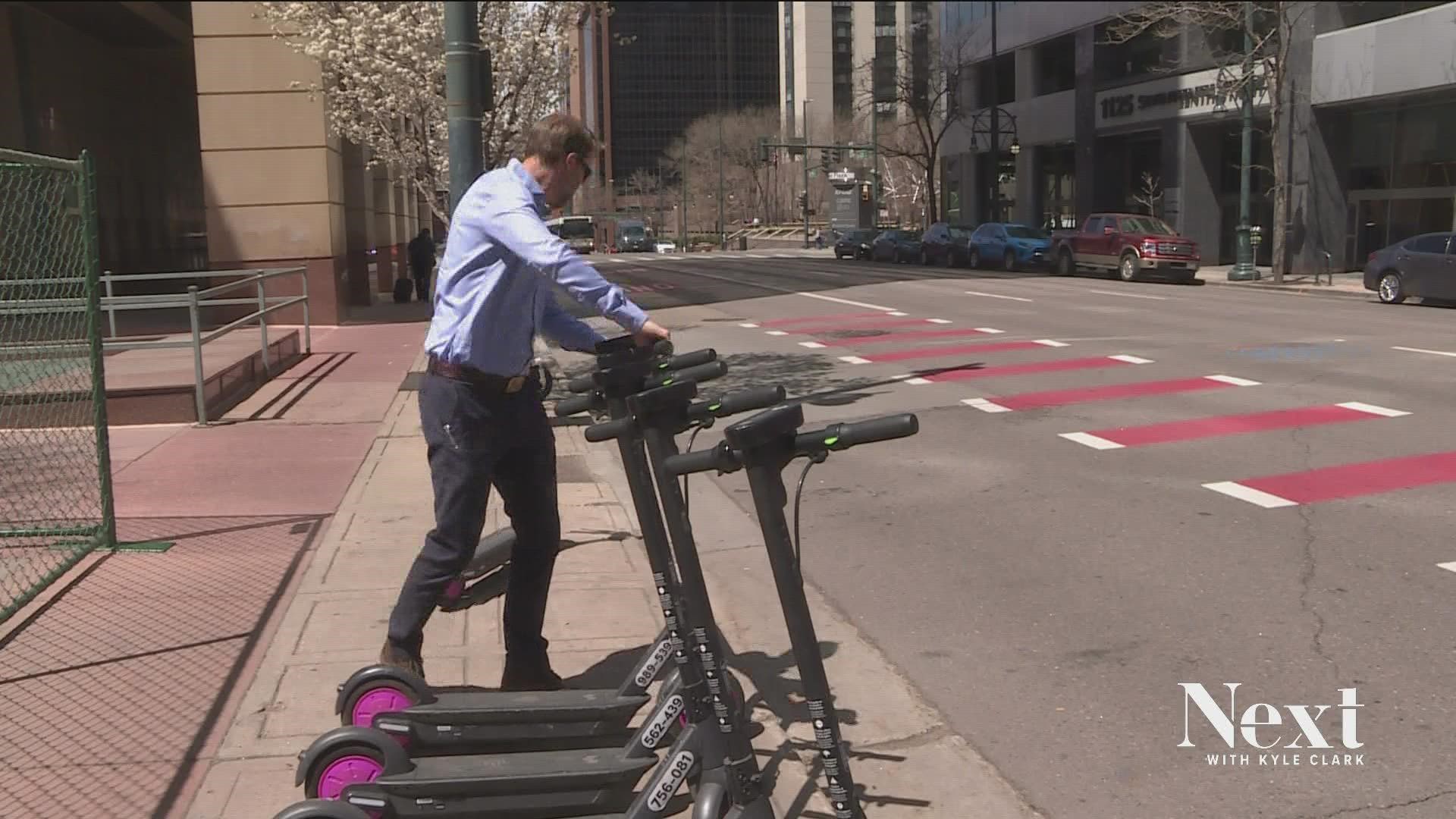DENVER — For the first time since dockless scooters and bikes descended on Denver, people can get a real time look at where and how they’re being used across the metro area.
A company called Ride Report, which provides cities with the data sourced from the ride-share companies that operate the bikes and scooters, is making the data public.
“Up until this point we’ve only really shared the data of that trip information with cities to help them track and manage their programs,” said Nelle Pierson, who leads marketing and communication for Ride Report. “Everyday people, researchers, advocates get to see what it’s like and what the programs doing in their city streets.”
The data includes ridership data for Denver, Aurora, Boulder, Littleton and Arvada, all of which have scooter and bike share programs. That regional mobility data is provided to the Denver Regional Council of Governments (DRCOG).
Looking at just Denver, for example, Ride Report said the media trip for a e-scooter lasts 8.5 minutes, with a media distance of .86 miles. There are 6,280 trips a day, on average with more than 7.4 million trips taken in total.
“It helps us enter this performance driven data driven landscape with more information,” said Emily Lindsey, Transportation Technology Strategist for DRCOG.
“Transportation, typically, when we talk about volumes or miles traveled typically people are referring to vehicle miles traveled,” she said. “It’s especially exciting with bicycle and pedestrian related activities because we typically have less information about them and we have to make the best with what’s available.”
The data allows DRCOG to identify issues in regional connectivity. Local governments can use the data to figure out where to build better infrastructure for cyclists and scooter riders.
“If I’m in Littleton and I need to get to work, am I taking a scooter on the light rail and then once I get here, taking a scooter to my office place? So it’s really showing the value of regional connectivity,” Pierson said.
But making the data public can spark and even larger conversation.
“The data from Ride Report can help advocates justify even more protected bike infrastructure,” she said.

